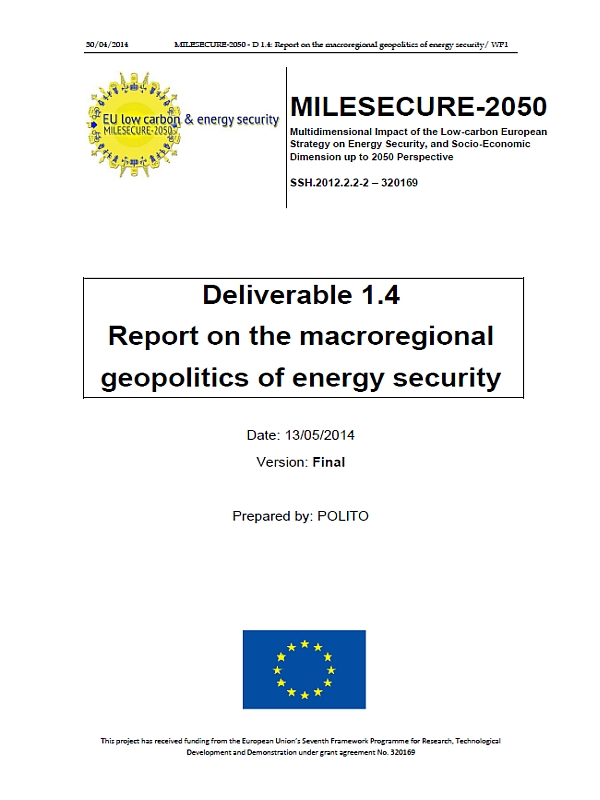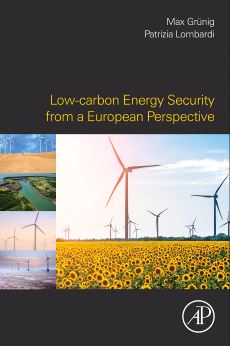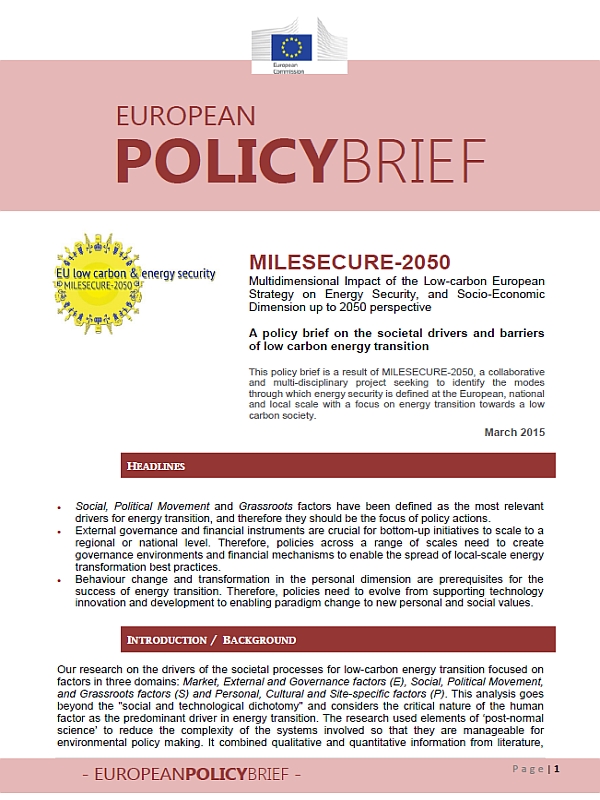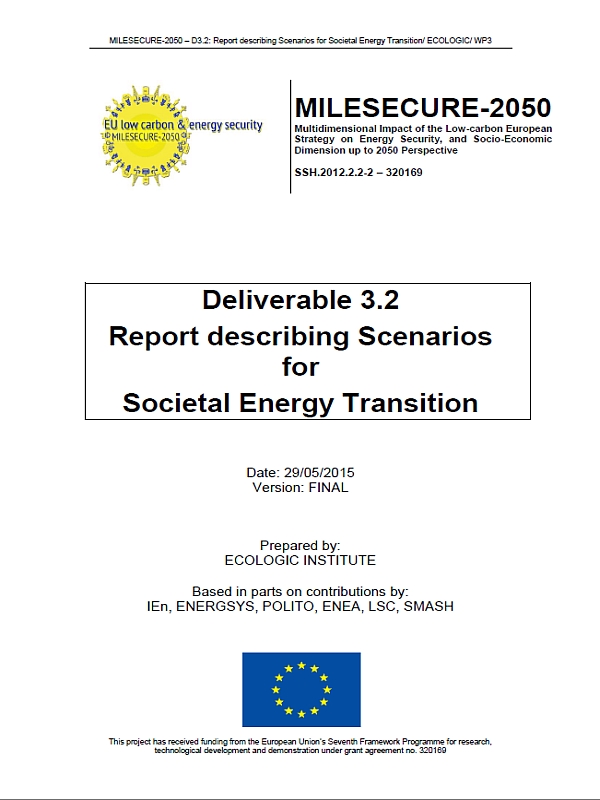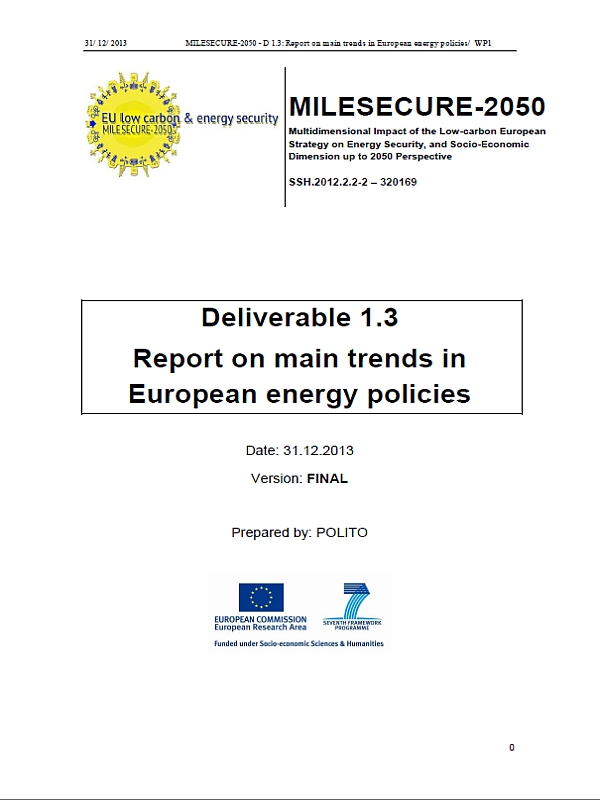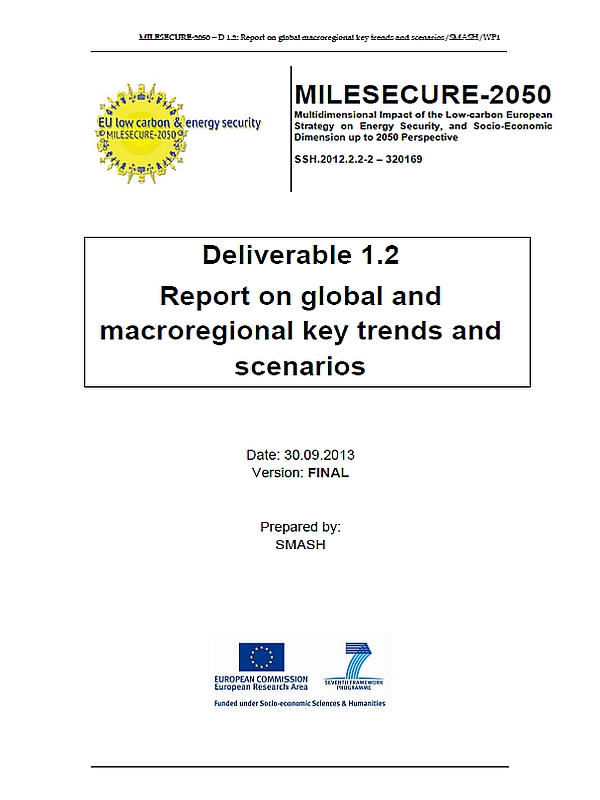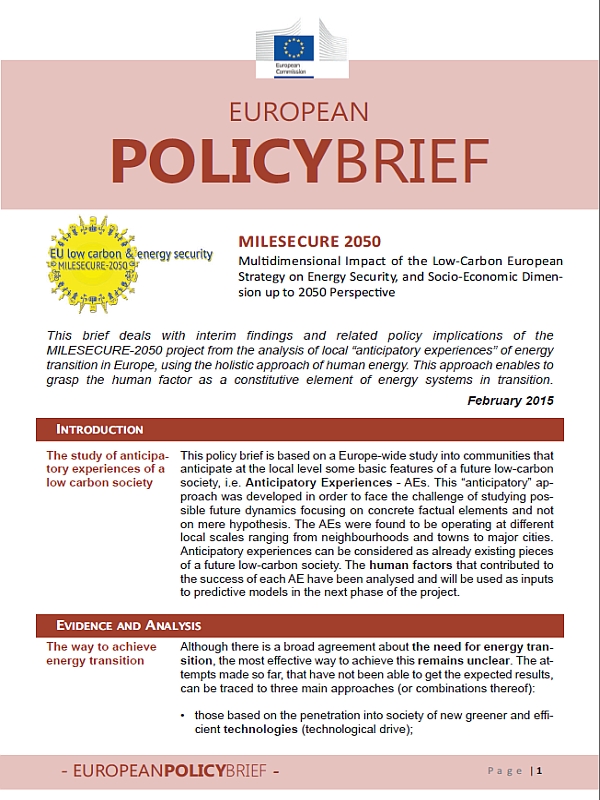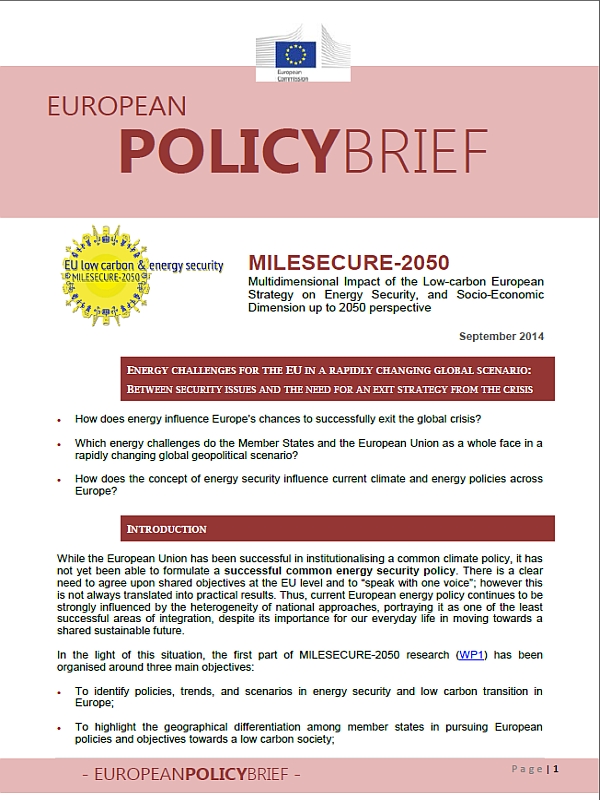Report on the Macroregional Geopolitics of Energy Security
Milesecure 2050 Deliverable 1.4
- Publication
- Citation
Armao, Fabio et al. 2014: Milesecure 2050 Deliverable 1.4 - Report on the Macroregional Geopolitics of Energy Security. Politecnico di Torino, Torino.
Armao, Fabio et al. 2014: Milesecure 2050 Deliverable 1.4 - Report on the Macroregional Geopolitics of Energy Security. Politecnico di Torino, Torino.
- Language
-
English
- Authorship
-
Adam PearsonMax GrünigKatharina UmpfenbachFabio Armao (POLITO)Silvia Crivello (POLITO)Patrizia Lombardi (POLITO)Marco Santangelo (POLITO)Marek Niemyski (EnergSys)Adam Umer (EnergSys)Sławomir Witkowski (EnergSys)Francesco Gracceva (JRC)Peter Zeniewski (JRC)
- Funding
-
European Commission, Directorate-General Research & Innovation (DG Research & Innovation), International - Published by
-
Politecnico di Torino, Italy - Year
- Dimension
- 142 pp.
- Project
- Project ID
- Table of contents
-
Click to show full table of contents
Abbreviations
Introduction
1. Energy security in a geopolitical perspective
1.1 Energy in an international scenario
1.2 Towards a new energy world order
1.3 Oil in the international order
1.3.1 Oil in the world
1.3.2 European oil suppliers
1.4 The role of natural gas in the world and in Europe
1.4.1 Natural gas in the world
1.4.2 European natural gas suppliers,
1.5 Coal in the world and in Europe
1.6 European energy geopolitics: key regions
1.6.1 The Persian Gulf
1.6.2 The Caspian sea
1.6.3 Africa
1.7 Building spatial representations
1.8 Concluding remarks
2. Energy security and geopolitical impacts of renewable energy mega-projects
Visions and case studies
2.1 DESERTEC Vision
2.1.1 Background and Energy Policies
2.1.2 Energy Security Implications
2.1.3 Geopolitical Effects
2.1.4 Noor Concentrated Solar Power Case Study
Energy Security Implications
Geopolitical Effects
2.1.5 Assessment
2.2 The North Sea Offshore Grid
2.2.1 Background and Energy Policies
2.2.2 Energy Security Implications
2.2.3 Geopolitical Effects
2.2.4 Kriegers Flak Case Study
Energy Security Implications
Geopolitical Effects
2.2.5 Assessment
2.3 Concluding remarks
Renewable Energy Mega-project Overviews
Energy Security Results of Mega-projects
3. The realisation of GHG reduction targets assigned by 20/20/20 package and the National Renewable Energy Action Plans (NREAP)
3.1 Long term (1990-2011) changes in GHG emission level from EU countries
3.2 Renewable Energy Action Plans (NREAPs)
3.2.1 Relation of the energy supplied by renewable sources to the gross final energy consumption (RES/energy)
3.2.2 Relation of RES electricity produced to the gross national electricity consumption (RES/electricity)
3.2.3 Conditioning factors of GHG reduction (2005-2012)
3.2.4 Social and economic conditions influencing the realisation of the climate policy
Living conditions
Mobility customs
Global climate awareness
Eastern Europe
Northern Europe
Central Europe
Mediterranean
4. Climate change and energy security objectives
4.1 Introduction
4.2 Conceptualising the links between energy security and low-carbon policies
4.2.1 Energy security as a system property of the energy supply chain
4.2.2 Modelling the security of energy systems
4.3 Assessing energy security in a low-carbon pathway
4.3.1 New challenges for system robustness
4.3.2 New challenges for system and market adequacy
4.3.3 New challenges for system resilience
4.3.4 New challenges for system flexibility
4.3.5 New challenges for system stability
4.4 Concluding remarks
Conclusions
5. References - Keywords
Transition towards Low-Carbon Energy Security (MILESECURE 2050)
- Duration
-
-
- Funding
-
European Commission, Directorate-General Research & Innovation (DG Research & Innovation), International
Milesecure 2050 Societal Processes of Energy Transition. March 2015. Milesecure 2050 Policy Brief. Turin: Politecnico di Torino.
Milesecure 2050 Analysis of Concrete Anticipatory Experiences on Energy Transition at the Local Level. February 2015. Milesecure 2050 Policy Brief. Turin: Politecnico di Torino.
Milesecure 2050 Analysis of energy policies, trends and existing scenarios from the national to the worldwide. September 2014. Milesecure 2050 Policy Brief. Turin: Politecnico di Torino.
Cassen, Christophe et al. 2013: Deliverable 1.2 - Report on Global and Macroregional Key Trends and Scenarios. SMASH, Paris
Crivello, Silvia et al. 2013: Milesecure 2050 Deliverable 1.3 - Report on Main Trends in European Energy Policies Politecnico di Torino, Torino.
Pearson, Adam et al. 2014: Milesecure 2050 Deliverable 3.1 Report on Drivers of Societal Processes of Energy Transition. Ecologic Institute, Berlin.
Grünig, Max et al. 2015: Milesecure 2050 Deliverable 3.2 - Report Describing Scenarios for Societal Energy Transition. Ecologic Institute, Berlin.
